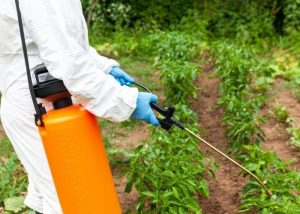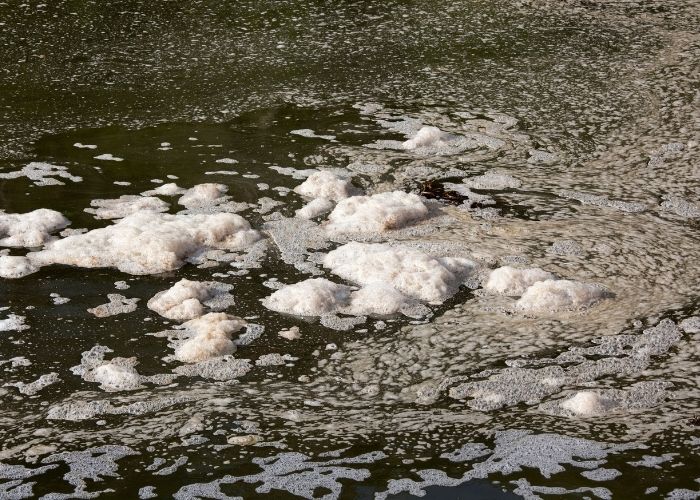MADRID – According to a report by the Spanish environmental association Ecologistas en Acción, 31% of surface water in Spain contains glyphosate. The study analyses data from rivers and other basins between 2015 and 2019.
The environmental group recalls that the compound is considered a potential carcinogen by the International Agency for Research on Cancer (IARC). Glyphosate is the active ingredient in herbicides. In agriculture, glyphosate is used to control weeds and grasses in fields that would compete with the target crop.
Glyphosate in weed killer
 The American company Monsanto marketed the product as a weed killer in the 1970s under the name Roundup. The patent on glyphosate expired in 1991. And since then, several manufacturers have been offering a variety of preparations based on glyphosate salts. Roundup is “probably carcinogenic” according to the health organisation WHO, yet the drug is authorised in the EU and used by farmers worldwide.
The American company Monsanto marketed the product as a weed killer in the 1970s under the name Roundup. The patent on glyphosate expired in 1991. And since then, several manufacturers have been offering a variety of preparations based on glyphosate salts. Roundup is “probably carcinogenic” according to the health organisation WHO, yet the drug is authorised in the EU and used by farmers worldwide.
The report ‘Pollution by glyphosate in the aquatic environment’ denounces that the glyphosate content exceeds the limit value of 0.1kg/m3 by 22%. Consequently, Ecologistas en Acción asks the government to ban the use of the substance.
The degradation metabolite, the amino phosphonate aminomethylphosphonic acid (AMPA), is also 42% present in surface water. It also exceeds the established limit value of 1.6 kilograms per cubic metre by 17%.
With regard to groundwater, the organisation indicates a presence of 11% and 0.3% respectively for glyphosate and AMPA. This is in addition to exceeding the limit value of the Groundwater Directive by 7% and 0.3%.
‘Toxic substance’ for aquatic life
Many studies show this pesticide can cause cancer. Therefore, the report states regulatory authorities should do a full analysis taking this into account. If they did, it would be “difficult” not to classify glyphosate as a carcinogen. In addition, the European Chemicals Agency (ECHA) classifies glyphosate as “a toxic substance” to aquatic life.
Therefore, the organisation is requesting the Ministry for the Ecological Transition and the Demographic Challenge (MITECO) and the Ministry of Agriculture, Fisheries and Food (MAPA) to revoke the authorisation of pesticides containing glyphosate for agricultural use.
In addition, the environmental organisation wants standards to be set for sampling and analysis of pesticides in surface and groundwater. This is in order to obtain complete information. Then, it can be broken down by area and comparable in the number of sampling points and periodicity of samples.
“Hundreds of times” higher than the legal limits
Likewise, the organisation describes as “extremely concerning” the cases where the established limits for the concentration of this agent are “hundreds of times” higher than the legal limits.
The full Ecologistas en Acción report can be found here (in Spanish).


